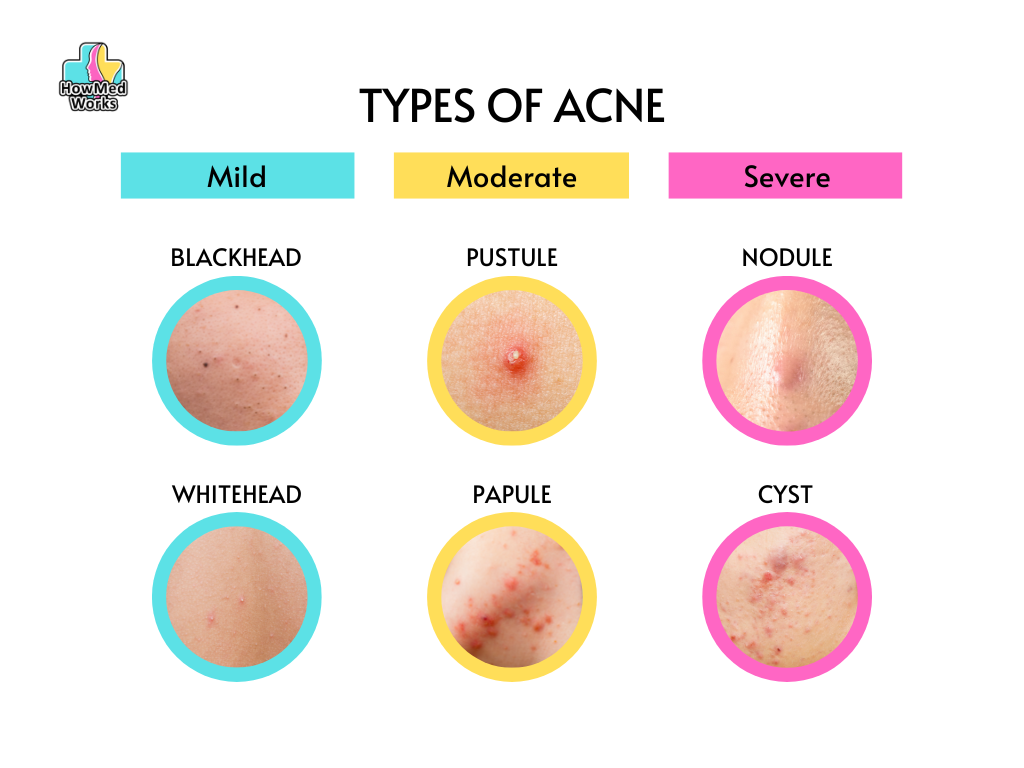
If you have acne, you might be sick of people calling you out and suggesting what-not remedies and treatments. And you! unknowingly try some that worsen your skin condition and wonder why something that has worked on them does not work on your acne. This is because acne is not of only one kind. Several types of acne occur due to different causes.
Types of Acne
This article will explore all the types of acne, their causes, and treatment methods that can help you. So, it is advised to read till the end because you cannot make your skin look better without understanding your skin condition. The acne formation is different, the causes are different and their treatment also varies. From non-inflammatory whiteheads and blackheads to inflammatory, painful, puss-filled cystic acne, there are so many types that cannot be cured with a single universal treatment. So, before further ado, let’s explore the types:
- Whiteheads (mild)
- Blackheads (mild)
- Papules (moderate)
- Pustules (moderate/ moderately severe)
- Cysts (severe)
Whiteheads
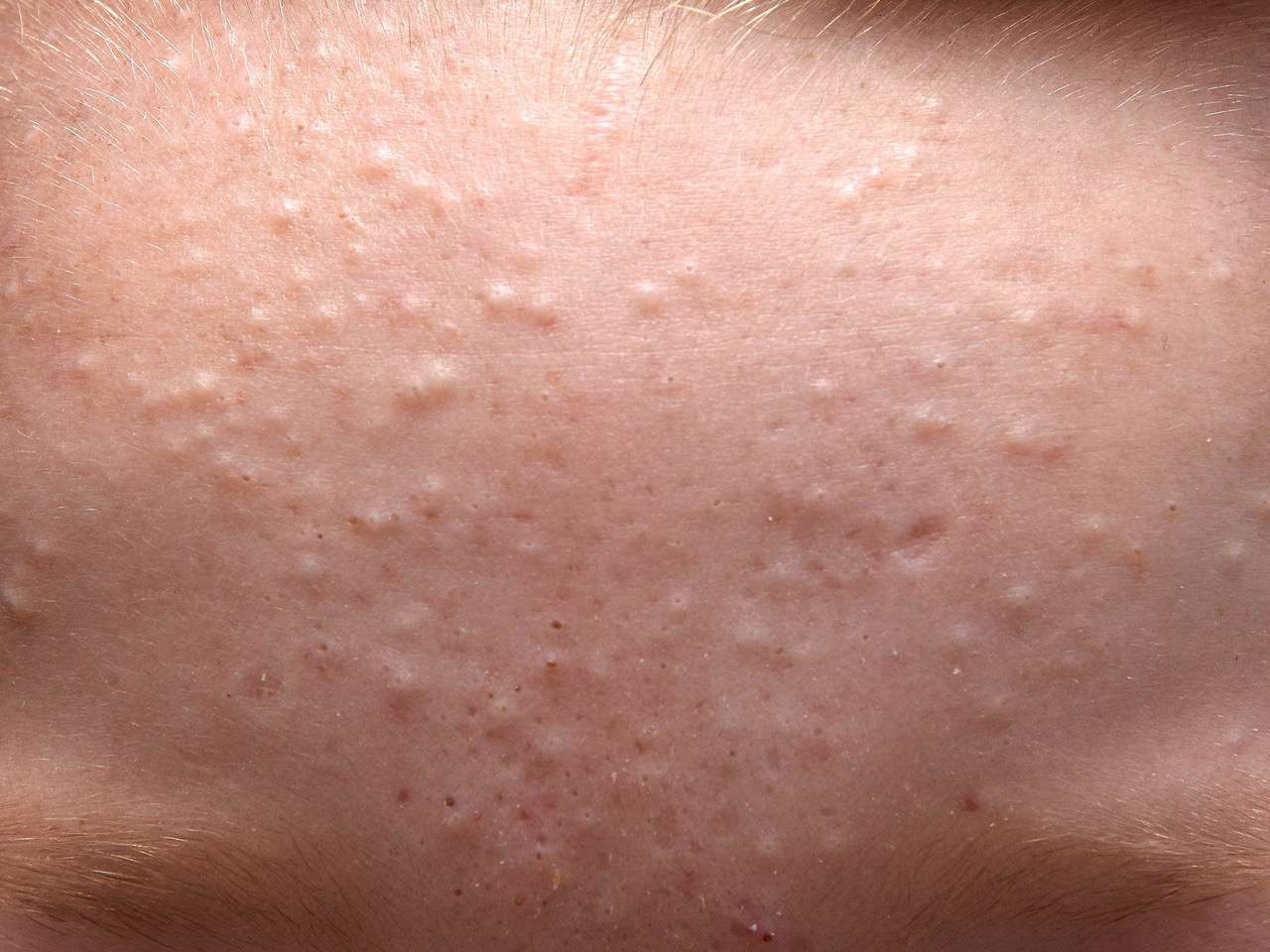
Whiteheads are the common types of mild acne that people of any age are prone to get even if they don’t have acne in their genes. These are comedones that occur due to sebum clogged in the pores. It causes the skin to become bumpy with whiteheads. Whiteheads usually occur on the nose, chin, forehead, cheeks, and back.
Treatment
To remove whiteheads, it is important to cleanse your face properly with a mild cleanser. It is preferable to use salicylic acid and benzoyl peroxide in the skincare routine.
Blackheads
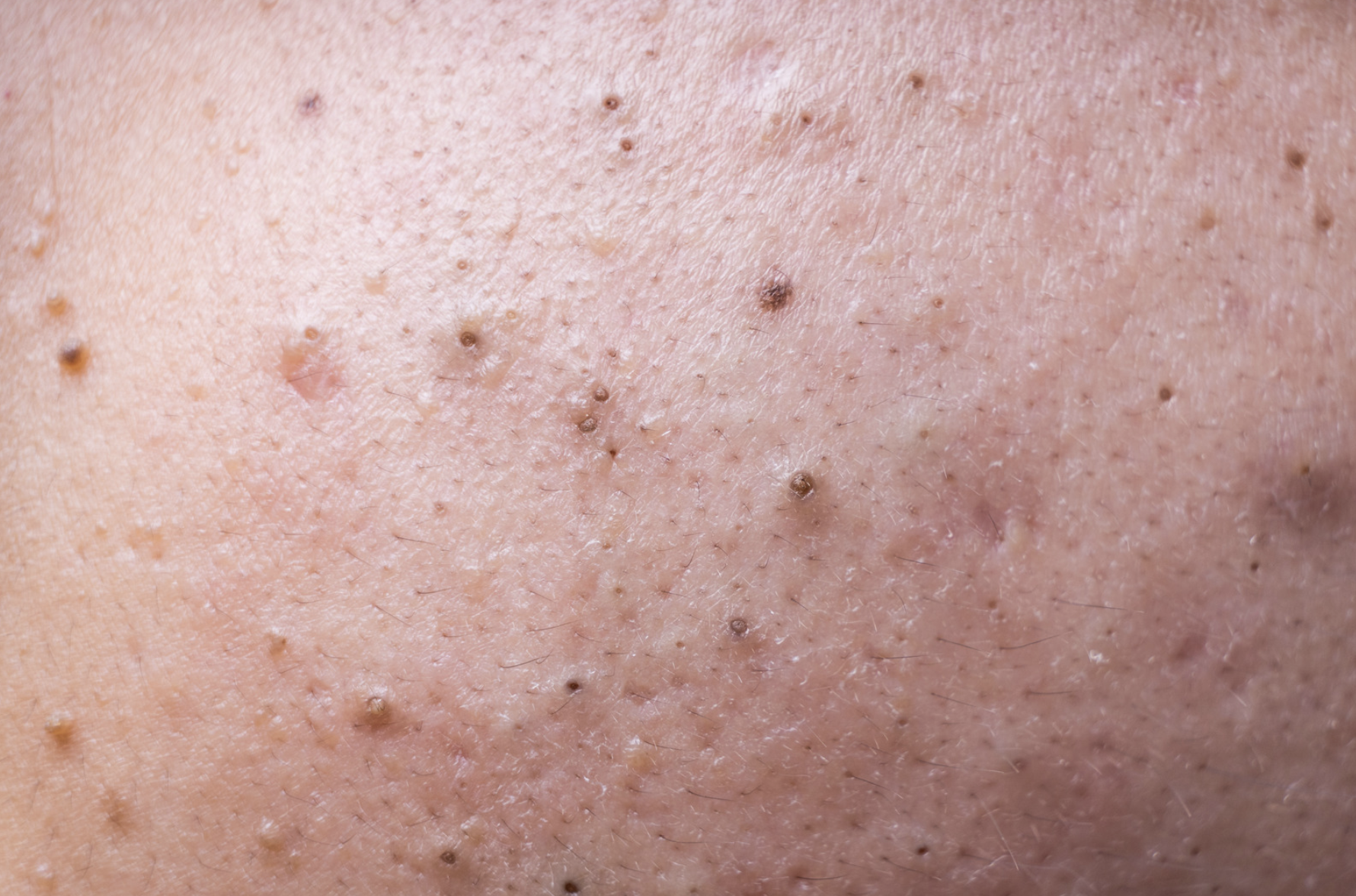
Blackheads are one of the non-inflammatory and mild types of acne that is a little more serious than whiteheads. It happens due to dirt and oil clogged inside the pores which causes black dots to appear on the nose, forehead, cheeks, chin, and back. It is due to pollution, excessive sebum production, unhygienic skincare routine, and other factors.
Treatment
you can treat blackheads using over-the-counter topical medications like salicylic acid or benzoyl peroxide. Other than medications, you can also use tea tree oil or other home remedies to clean your skin. To prevent blackheads from appearing on your skin, cleanse your face twice a day.
Papules
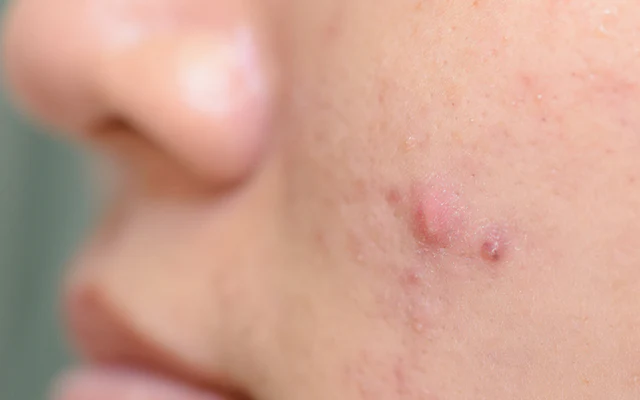
Acne papules are moderate kinds of acne that are smaller than 1 centimetre but are inflamed. These inflammatory papules appear as red, or skin-colored bumps in a conical shape. They are usually red in colour with no white or yellow puss-filled tips. Papules are inflamed so it is better to avoid pinching or squeezing them as they may cause pain and irritation. Papules develop in various body parts like chin, cheeks, neck, shoulders, chest, back, upper arms, nose, and forehead.
Treatment
For the treatment of papules, it is better to consult a dermatologist before starting any antibiotics oral medications. Or you can also try some topical treatments like salicylic acid, Azaelic Acid, Benzoyl Peroxide, and Retinoids.
Pustules
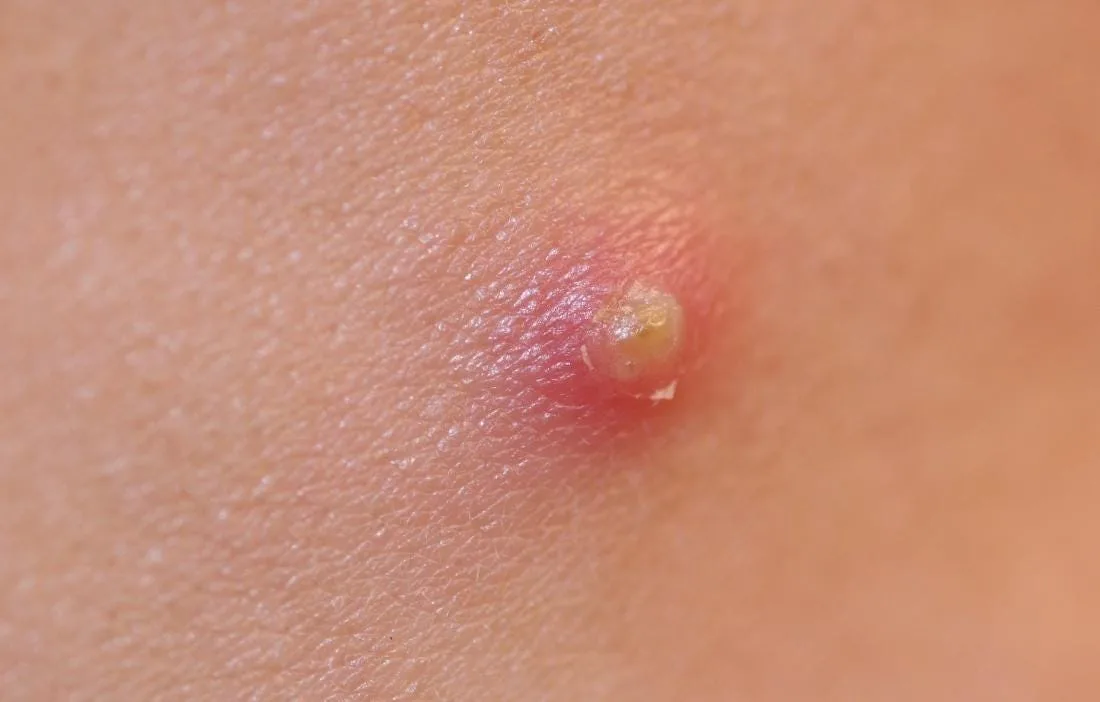
Pustules are a moderately severe kind of papules with puss-filled tips. They have bulging inflammatory skin with yellowish or whitish puss inside it. They occur due to some bacterial infections under the skin that cause puss to clog the pore. Pustules are painful or feel sore upon touch.
Treatment of Pustules
To treat pustules, you need to consult your dermatologist to find the exact cause. They may be treated using oral or topical medications. For prevention, control your sebum production by cleansing your face twice a day. Add ingredients like Salicylic Acid or Benzoyl Peroxide to your routine and stay gentle with your skin.
Cysts
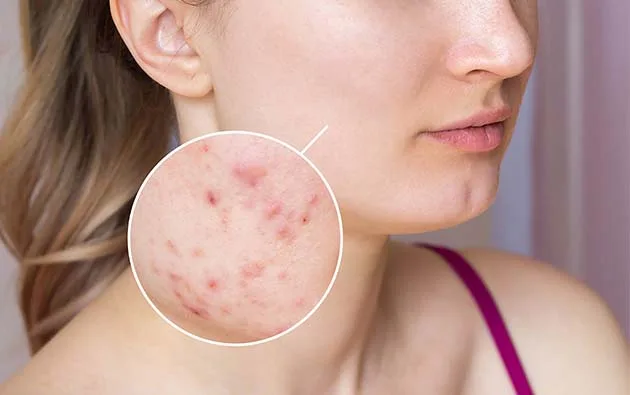
Cystic acne is a severe type of acne in which sebum and dead skin cells clog deep inside the skin causing the skin to have a bulging inflammatory skin. These are inflammatory puss and blood-filled acne. They are painful and leave scars upon healing. Cystic acne occurs due to hormonal imbalances or infections in the body.
Treatment
Cystic acne is difficult to treat with only OTC topical medications like salicylic acid or benzoyl peroxide. You need to consult a dermatologist for oral medications, change your diet plan and focus on your skincare routine.
The Bottom Line
Acne is of different kinds and severity depending on the causes. Some may occur due to pollution and an unhygienic lifestyle. While others may be due to genetics, hormonal imbalance, and bacterial infections. Considering the difference in each type of acne, it is easier to treat it properly. Therefore, it is advisable to consult your doctor for acne diagnosis and start a treatment that suits you. Majorly, all acne types require care and preventative measures. So, medications may be different but basic lifestyle changes and self-care will help clear skin for everyone with any kind of acne or skin condition.
FAQs
How do I know my Acne type?
Acne conditions vary from mild to moderate to severe. Therefore, it is always better to consult a dermatologist for acne diagnosis before starting any treatment.
What type of Acne are pimples?
Pimples are bumpy acne that is filled with yellowish-puss with red or pink outlines. They may be painful and appear swollen.
What are the 4 levels of acne?
The four types of acne are:
- Mild
- Moderate
- Moderately Severe
- Severe
What is the hardest type of acne to treat?
The hardest type of acne to treat is cystic acne because it requires dermatologists’ treatment to heal. Squeezing or popping this pimple may worsen the skin and lead to scarring.
What is hormonal acne?
Hormonal acne occurs in adulthood due to hormonal imbalances in the body. The symptoms of hormonal acne are breakouts on the jaw and neck that are linked to disorders in reproductive symptoms. Hormonal imbalance leads to the overproduction of sebum that clogs the pores and leads to acne breakouts.
